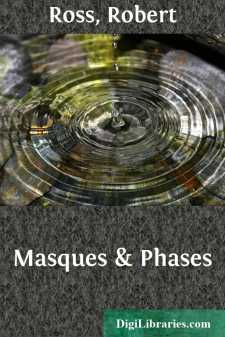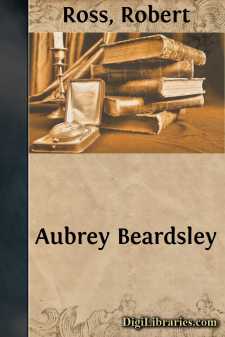Categories
- Antiques & Collectibles 13
- Architecture 36
- Art 48
- Bibles 22
- Biography & Autobiography 813
- Body, Mind & Spirit 142
- Business & Economics 28
- Children's Books 17
- Children's Fiction 14
- Computers 4
- Cooking 94
- Crafts & Hobbies 4
- Drama 346
- Education 46
- Family & Relationships 57
- Fiction 11829
- Games 19
- Gardening 17
- Health & Fitness 34
- History 1377
- House & Home 1
- Humor 147
- Juvenile Fiction 1873
- Juvenile Nonfiction 202
- Language Arts & Disciplines 88
- Law 16
- Literary Collections 686
- Literary Criticism 179
- Mathematics 13
- Medical 41
- Music 40
- Nature 179
- Non-Classifiable 1768
- Performing Arts 7
- Periodicals 1453
- Philosophy 64
- Photography 2
- Poetry 896
- Political Science 203
- Psychology 42
- Reference 154
- Religion 513
- Science 126
- Self-Help 84
- Social Science 81
- Sports & Recreation 34
- Study Aids 3
- Technology & Engineering 59
- Transportation 23
- Travel 463
- True Crime 29
Masques & Phases
by: Robert Ross
Categories:
Description:
Excerpt
It is a common error to confuse the archæologist with the mere collector of ignoble trifles, equally pleased with an unusual postage stamp or a scarce example of an Italian primitive. Nor should the impertinent curiosity of local antiquaries, which sees in every disused chalk-pit traces of Roman civilisation, be compared with the rare predilection requisite for a nobler pursuit. The archæologist preserves for us those objects which time has forgotten and passing fashion rejected; in the museums he buries our ancient eikons, where they become impervious to neglect, praise, or criticism; while the collector—a malicious atavist unless he possess accidental perceptions—merely rescues the mistakes of his forefathers, to crowd public galleries with an inconsequent lumber which a better taste has taught as to despise.
In the magic of escaped conventions surely none is more powerful than the Greek, and even now, though we yawn over the enthusiasm of the Renaissance mirrored in our more cadenced prose, there are some who can still catch the delightful contagion which seized the princes and philosophers of Europe in that Martin’s Summer of Middle Age.
Of the New Learning already become old, Professor Lachsyrma is reputed a master. Scarcely any one in England holds a like position. He is sixty, and, though his youth is said to have been eventful, he hardly looks his age. He speaks English with a delightful accent, and there always hangs about his presence a melancholy halo of mystery and Italy. His quiet unassumed familiarity with every museum and library on the Continent astonishes even the most erudite Teuton. Among archæologists he is thought a pre-eminent palæographer, among palæographers a great archæologist. I have heard him called the Furtwängler of Britain. His facsimiles and collated texts of the classics are familiar throughout the world. He has independent means, and from time to time entertains English and foreign cognoscenti with elegant simplicity at his wonderful house in Kensington. His conversation is more informing than brilliant. Yet you may detect an unaccountable melancholy in his voice and manner, attributed by the irreverent to his constant visits to the Museum. Religious people, of course, refer to his loss of faith at Oxford; for I regret to say the Professor has been an habitual freethinker these many years.
However it may be, Professor Lachsyrma is sad, and has not yet issued his edition of the newly discovered poems of Sappho unearthed in Egypt some time since—an edition awaited so impatiently by poets and scholars.
Some years ago, on retiring from his official appointment, Professor Lachsyrma, being a married man, searched for some apartment remote from his home, where he might work undisturbed at labours long since become important pleasures. You cannot grapple with uncials, cursives, and the like in a domestic environment. The preparation of facsimiles, transcripts, and palæographical observations, reports of excavations and catalogues, demands isolation and complete immunity from the trivialities of social existence.
In a large Bloomsbury studio he found a retreat suitable to his requirements. The uninviting entrance, up a stone staircase leading immediately from the street, was open till nightfall, the rest of the house being used for storage by second-hand dealers in Portland Street. No one slept on the premises, but a caretaker came at stated intervals to light fires and close the front door; for which, however, the Professor owned a pass-key, each room having, as in modern flats, an independent door that might be locked at pleasure. The general gloom of the building never tempted casual callers. The Professor purposely abstained from the decoration or even ordinary furnishing of his chamber. The whitewashed walls were covered with dust-bitten maps, casts of bas-reliefs, engravings of ruins. Behind the door were stacked huge packing-cases containing the harvest of a recent journey to the eastern shores of the Mediterranean. Along one wall mutilated statues and torsos were promiscuously mounted on trestles or temporary pedestals made of inverted wooden boxes. Above them a large series of shelves bulging with folios, manuscript notebooks, pamphlets, and catalogues ran up to the window, which faced north-east, admitting a strong top-light through panes of ground glass; the lower sash was hidden by permanent blinds in order to shut out all view of the opposite houses and the street below. A long narrow table occupied the centre of the room. It was always strewn with magnifying-glasses, proofs, printers’ slips, negatives—the litter of a palæographic student. There were three or four wooden chairs for the benefit of scholarly friends, and an armchair upholstered in green rep near the stove. In a corner stood the most striking, perhaps the only striking, object in the room—a huge mummy from the Fayyûm. The canopic jars and outer coffins belonging to it were still unpacked in the freight cases. It had been purchased from a bankrupt Armenian dealer in Cairo along with a number of Græco-Egyptian antiquities and papyri, of far greater interest to the Professor than the mummy itself. As soon as the interior was examined it was to be presented to the Museum; but more entertaining and important studies delayed its removal. For many months, with a curious grave smile, the face on the shell seemed to look down with amused and permanent interest on Professor Lachsyrma struggling with the orthography of some forgotten scribe, and arguing with a friend on mutilated or corrupt passages in a Greek palimpsest....



